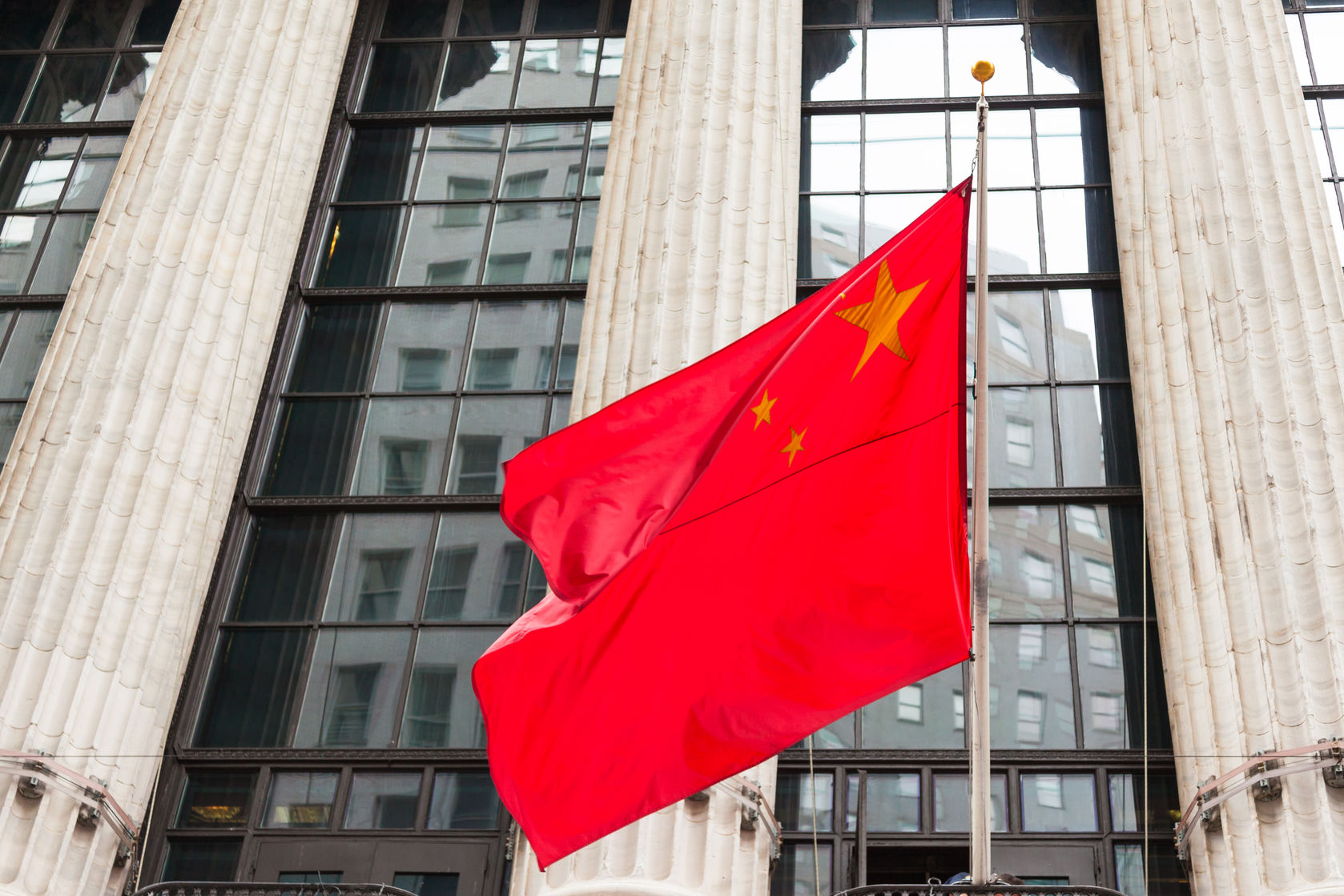21 January 2021
On January 9, 2021, China’s Ministry of Commerce (MOFCOM) issued Rules on Counteracting Unjustified Extra-territorial Application of Foreign Legislation and Other Measures (Blocking Rules), effective immediately. The Blocking Rules (i) establish a means by which Chinese companies damaged by unilaterally imposed trade restrictions from the U.S. (or other countries) may seek redress, and (ii) give China the ability to unilaterally nullify the effects of such restrictions for its citizens. Such nullification will set up a potential future conflict for companies outside the U.S. or China (so called third-jurisdiction companies or citizens), which may find themselves in the unenviable position of having to choose between following U.S. or Chinese law where the two directly conflict.
Not intended as a measure to affect trade directly between the U.S. and China, the Blocking Rules focus on non-Chinese measures that impact entities operating in third jurisdictions, such as companies operating in the European Union, United Kingdom, Japan, India, South Korea or others. Many such third-jurisdiction companies currently observe unilaterally imposed U.S. measures such as trade embargos on Iran and Cuba, or broad export (or reexport) control restrictions on the transfer of U.S. goods, software or technology, including restrictions relating to entities on the U.S. Department of Commerce Entity List. The Blocking Rules allow China to nullify or reverse the effects of such restrictions for legal entities and citizens of China, which likely will include foreign-invested entities in China (i.e., Chinese subsidiaries of third-jurisdiction or multinational companies, or arguably even U.S. companies). They also potentially expose such foreign-invested subsidiaries based in China to fines or liability for civil damages for benefits accrued from or damages caused by following such foreign rules.
How the Blocking Rules will work in practice is still largely unclear. While they set out a basic framework, which is explained in more detail below, most of the specific provisions and guidance have been worded in broad terms, which will reserve substantial discretion to MOFCOM in implementing and administering the rules. However, the priority and urgency of the Blocking Rules are clear, as MOFCOM has taken the extraordinary step of having them take effect immediately rather than observing the normal 30-day consultation period for foreign-related legislation.
Framework
The Blocking Rules permit China to counteract “unjustified extra-territorial application of foreign legislation and other measures” when such application “unjustifiably prohibits or restricts” Chinese citizens or companies from engaging in “normal economic, trade and related activities with a third state (or region) or its citizens, legal persons or other organizations.”1
The Blocking Rules apply to “the citizens, legal persons or other organizations of China” (collectively “Chinese Persons”), likely including foreign-invested enterprises established in China. Under the wording of the Blocking Rules, they do not directly appear to apply to non-Chinese parties, and do not apply to international agreements to which China is a party.2 The framework set out in the Blocking Rules consists of five major components: (i) a reporting obligation; (ii) an assessment of the scope of application; (iii) prohibition orders and exemption; (iv) judicial remedies; and (v) penalties.
-
Reporting Obligation.3 The Blocking Rules require a Chinese Person to report to MOFCOM within 30 days if the Chinese Person is prohibited or restricted from engaging in normal business activities with parties of third countries/regions due to non-Chinese laws or measures. Reports can be made confidentially by request. As explained below, failure to report may lead to warnings and/or fines.
-
Scope of Application.4 MOFCOM, the National Development and Reform Commission (NDRC) and other central-level authorities will consider the following factors to assess whether measures in question are indeed “unjustified”:< >whether extraterritorial application violates international law or basic principles of international relations;the potential impact on China’s national sovereignty, security and economic development;the potential impact on “legitimate rights and interests” of Chinese Persons; andother additional factors, not further specified.Prohibition Orders and Exemption.5 For “unjustified” extraterritorial application, the Blocking Rules authorize MOFCOM to issue a prohibition order contravening the measure (Prohibition Order). No specific foreign measures have yet been identified or prohibited.6 Chinese Persons may apply for an exemption from complying with a Prohibition Order, but the Blocking Rules do not further specify the criteria to be considered in assessing such an exemption. Failure to comply with a Prohibition Order can lead to fines and civil lawsuits for damages, as explained below.
-
Judicial Remedies.7 Where a Prohibition Order has been issued, the Blocking Rules enable a Chinese Person damaged by such unjustifiable measures to (i) seek “support” from the Chinese government and (ii) bring civil lawsuits in Chinese courts to recover losses. With respect to “support” from the Chinese government, the Blocking Rules do not elaborate on what such support might entail, but it could include both trade countermeasures as well as financial compensation for losses. With respect to the civil lawsuits, these are permitted to target both companies that are complying with the measures identified in a Prohibition Order, as well as companies that benefit from a judgment or ruling based on the unjustified measure. The Blocking Rules do not provide details on how damages may be calculated or proven. A foreign-invested subsidiary in China that seeks to comply with a foreign measure that becomes subject to a Prohibition Order may therefore find itself open to liability (barring successful application for an exemption).
-
Penalties.8 The Blocking Rules also provide for penalties where a Chinese Person fails to notify or comply with a Prohibition Order. Penalties may include warnings, orders to rectify and fines (although the amounts are as yet unspecified).
Recommendations
Given the lack of specificity in the Blocking Rules, how they will function in practice remains to be seen. If the new rules are strictly enforced, multinational and third-jurisdiction companies as well as their respective Chinese subsidiaries may face significant dilemmas in trying to comply with potentially contradictory laws imposed by China and the U.S.
As companies watch to see how extensive the practical application and impact of the Blocking Rules become, they can already begin to consider several steps.
-
Companies should proactively evaluate their potential risk exposures — especially businesses in areas already mandating significant efforts to comply with U.S. measures, such as financial services, semiconductors and other advanced technology.
-
Companies will need to monitor Prohibition Orders — not only to fulfil potential reporting obligations for subsidiaries operating in China, but also to evaluate how such Prohibition Orders may be used commercially (either offensively or defensively) by companies and their rivals.
-
Companies should heighten their awareness of and sensitivity to potential future litigation arising in response to the new rules, and follow prudent document creation and internal discussion protocols with respect to determinations evaluating compliance with the Blocking Rules.
For further information, please contact:
Frederic Depoortere, Partner, Skadden
frederic.depoortere@skadden.com
1 Articles 1 and 2 of the Blocking Rules.
2 The Blocking Rules in Article 15 explicitly carve out extraterritorial application of non-Chinese measures as provided in treaties or international agreements to which China is a party.
3 Article 5 of the Blocking Rules.
4 Articles 4 and 6 of the Blocking Rules.
5 Articles 7 and 8 of the Blocking Rules.
6 MOFCOM only indicated that the Chinese government will “closely track” any unjustifiable extraterritorial application without specifying when to expect issuance of Prohibition Orders. (MOFCOM Commentary on the Blocking Rules during a Q&A is available in Mandarin.)
7 Articles 9 to 12 of the Blocking Rules.
8 Articles 13 and 14 of the Blocking Rules


.jpg)




